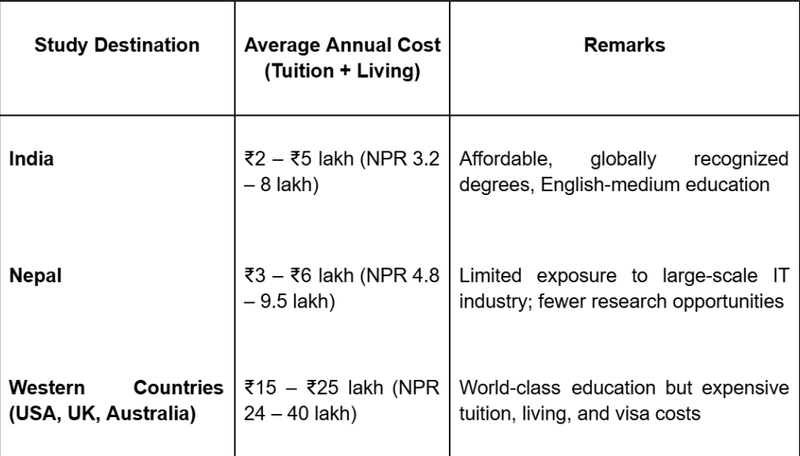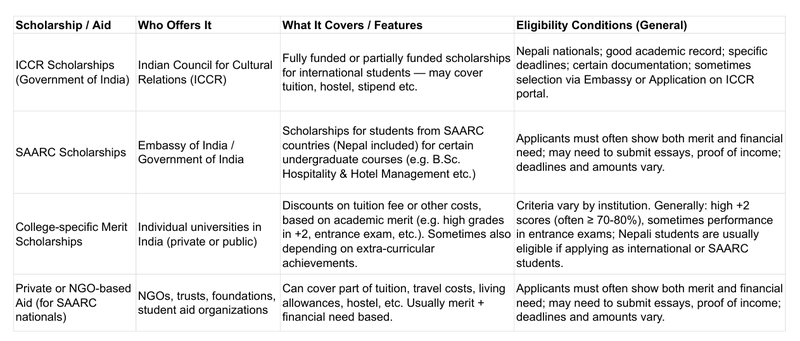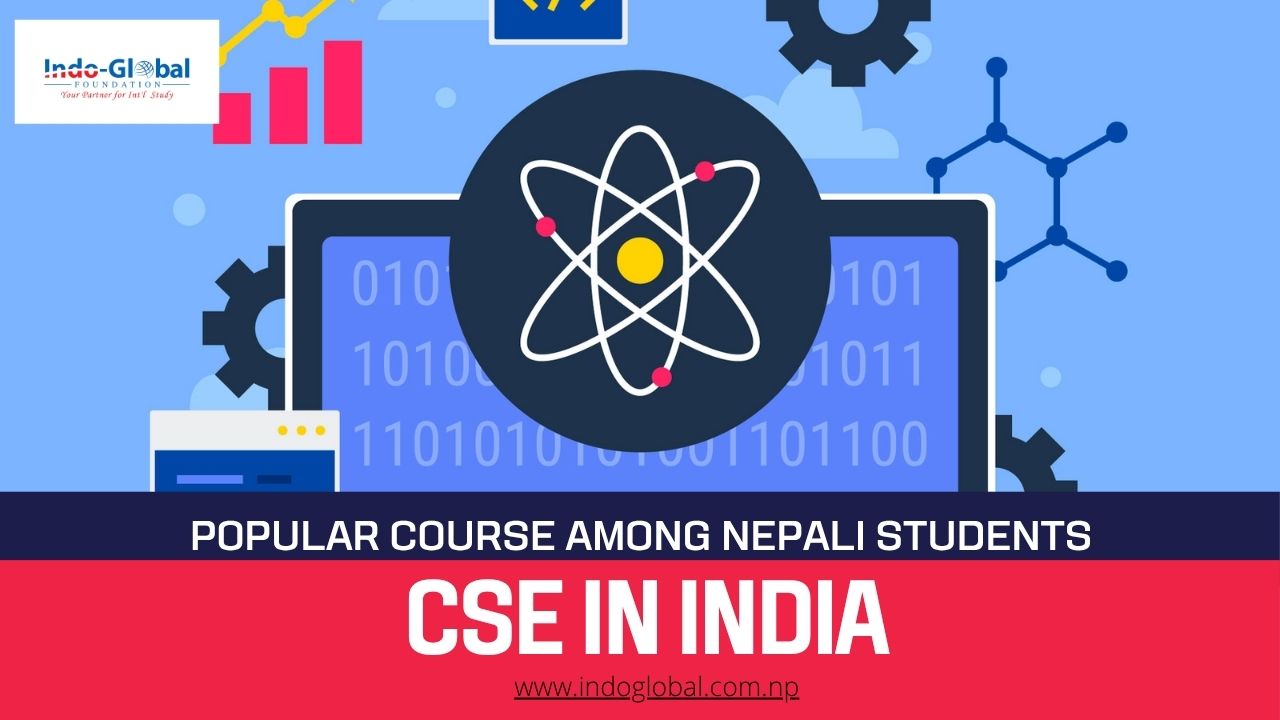1. Introduction
Computer Science and Engineering (CSE) is a dynamic and interdisciplinary academic field that combines the principles of computer science and computer engineering. It bridges the gap between theoretical computing concepts and their real-world engineering applications, covering everything from software development and algorithm design to computer architecture, networking, and artificial intelligence. In essence, CSE equips students with the knowledge and skills to design, develop, and maintain innovative computer systems and technologies that power the modern world.
CSE is among the most popular and in-demand engineering disciplines globally. In today’s digital era—where technology drives every sector from healthcare and finance to education and entertainment—the need for skilled computer engineers continues to surge. Graduates of CSE find diverse career opportunities in software development, web and mobile app creation, cloud computing, cybersecurity, data science, and AI-based technologies. Its broad applicability, high employability, and strong salary prospects make it a preferred choice for tech-driven students worldwide.
When it comes to studying CSE, India stands out as a top destination for engineering education. The country is home to globally recognized institutions like the Indian Institutes of Technology (IITs), National Institutes of Technology (NITs), and several reputed private universities offering state-of-the-art infrastructure, industry-oriented curricula, and affordable tuition fees. India’s booming IT and software industry—one of the largest in the world—provides students with vast internship and employment opportunities even before graduation.
For Nepali students, India is an especially appealing study destination. The geographical proximity, cultural familiarity, and linguistic ease make the transition smoother compared to Western countries. Moreover, with English as the medium of instruction in most Indian institutions and numerous scholarships and exchange programs available under SAARC and ICCR initiatives, pursuing CSE in India becomes both accessible and rewarding.
In short, studying Computer Science and Engineering in India offers Nepali students an ideal blend of quality education, practical exposure, affordability, and career growth—making it a smart choice for those aiming to build a successful future in technology.
2. What is Computer Science and Engineering (CSE)?
Computer Science and Engineering (CSE) is an interdisciplinary field that integrates the principles of computer science and electronic engineering to design, develop, and optimize computing systems. It focuses on understanding how computers work—both in terms of hardware and software—and how they can be used to solve real-world problems efficiently.
In simple terms, CSE is the foundation of the digital world. It involves studying the theories of computation, mastering programming languages, designing software applications, and understanding the architecture of computer systems. CSE students learn to think logically, build algorithms, analyze data, and create innovative technological solutions.
Core Focus Areas of CSE
The field of Computer Science and Engineering covers a wide range of subjects and technologies, including:
- Programming Languages: Learning to code in languages like C, C++, Java, Python, and more to build software applications and systems.
- Algorithms and Data Structures: Understanding how to organize and process data efficiently to solve computational problems.
- Database Management Systems (DBMS): Managing, storing, and retrieving data using platforms like MySQL, Oracle, and MongoDB.
- Artificial Intelligence (AI) and Machine Learning (ML): Developing systems that can analyze data, learn from experience, and make intelligent decisions.
- Software Development and Networking: Designing software, managing communication systems, and ensuring seamless connectivity between devices.
CSE in the Modern Digital World
In today’s technology-driven era, CSE plays a crucial role in shaping every aspect of life. From artificial intelligence and robotics to cybersecurity, cloud computing, and data analytics, CSE professionals are behind every major technological innovation. It is the driving force behind industries such as healthcare, finance, education, transport, and entertainment, ensuring faster, smarter, and more secure digital solutions.
By studying CSE, students gain not only technical expertise but also problem-solving and analytical skills that are highly valued in the global job market. Whether one dreams of becoming a software engineer, data scientist, or AI researcher, CSE provides the foundation for limitless opportunities in the modern digital age.
3. Why Study CSE in India?
India has established itself as one of the global leaders in technology and engineering education, making it a preferred destination for students from across Asia especially Nepali students seeking a quality yet affordable learning experience. Studying Computer Science and Engineering (CSE) in India offers an excellent combination of world-class academics, cutting-edge research opportunities, and vast career prospects.
1️. Globally Recognized Universities and Institutions
India is home to some of the most reputed engineering institutions in the world, such as the Indian Institutes of Technology (IITs), National Institutes of Technology (NITs), and Indian Institutes of Information Technology (IIITs). These institutions consistently rank high in global and Asian university rankings for their excellence in teaching, innovation, and research.
Alongside government institutions, several top private and deemed universities — like VIT University, SRM Institute of Science and Technology, Manipal University, Lovely Professional University (LPU), Chandigarh University, and Jain University — offer strong CSE programs designed with modern industry demands in mind. Many of these universities have collaborations with international tech companies and global universities, ensuring that students receive global exposure while studying in India.
2️. Affordable and High-Quality Education
Compared to Western countries such as the USA, UK, or Australia, India provides world-class technical education at a fraction of the cost.
- Tuition fees for CSE programs in India range between ₹1.5–₹5 lakh per year depending on the institution, which is significantly lower than foreign universities offering similar standards.
- The cost of living is also affordable, with hostel facilities, food, and transportation easily manageable for international students.
For Nepali students, this makes India an ideal destination where quality education meets financial feasibility, allowing them to graduate without the burden of heavy financial debt.
3️. Strong IT and Technology Industry
India’s information technology sector is one of the largest in the world, contributing significantly to the country’s economy and global digital innovation. Major IT hubs like Delhi, Bangalore, Hyderabad, Pune, and Chennai are home to leading multinational companies such as Infosys, TCS, Wipro, HCL, Tech Mahindra, and Accenture and all the global brands and company like Google, Amazon, Microsoft, OpenAI etc.
Students pursuing CSE in India benefit from:
- Internship and project opportunities with renowned IT firms.
- Industry collaborations for hands-on training and certifications.
- Exposure to real-world tech challenges, preparing them for employment immediately after graduation.
The connection between academia and industry ensures that students not only gain theoretical knowledge but also develop practical and professional skills essential for success in the global job market.
4️. Cultural and Geographical Proximity
For Nepali students, studying in India feels like a home away from home. The two countries share deep cultural, historical, and linguistic ties, making adaptation smooth and comfortable.
- Many Indian cities have vibrant Nepali communities and student associations that offer guidance and support.
- Geographical proximity allows easy travel between the two countries, with affordable flights and road connections.
- The cultural familiarity ensures students feel safe and socially integrated throughout their academic journey.
This proximity also makes it easier for parents to stay connected and visit when needed, an emotional advantage for families choosing to send their children abroad for education.
5. English-Medium Instruction and Global Curriculum
Most Indian universities and colleges conduct CSE programs entirely in English, making it easy for Nepali students to follow coursework, communicate with faculty, and engage in research.
Additionally, the curriculum in India is globally recognized and regularly updated to match technological advancements. Topics such as Artificial Intelligence, Machine Learning, Data Science, Cybersecurity, Cloud Computing, and IoT are now core components of CSE programs in many institutions. This ensures that graduates are well-prepared to compete in the global IT and innovation market.
Studying Computer Science and Engineering in India gives Nepali students access to:
- Top-ranked universities
- Affordable, high-quality education
- Vast internship and job opportunities
- Cultural comfort and proximity
- English-based learning with international exposure
In short, India offers the perfect environment where Nepali students can build strong technical skills, gain practical experience, and launch successful global careers in the ever-evolving world of technology.
4. Eligibility Criteria for Nepali Students
- Academic qualification: 10+2 or equivalent with Physics, Chemistry, Mathematics.
- Minimum percentage (usually 50%–60%).
- Entrance exams (if any):
- Some universities require JEE Main / university-level exams.
- Many private or deemed universities offer direct admission or through merit.
- Some universities require JEE Main / university-level exams.
Document Required
SEE Mark Sheet, SEE Character Certificate, +2 Transcript, Provisional Certificate, +2 Character Certificate, Migration Certificate, Citizenship (both sides) / Passport, Passport-size Photo, Email ID, Phone Number, Permanent Address
5. Top Universities and Colleges for CSE in India
India is home to some of the world’s best institutions for Computer Science and Engineering (CSE). From government-funded IITs and NITs to reputed private and deemed universities, students can find programs that combine strong academics, practical learning, and global recognition. For Nepali students, the wide range of choices ensures access to quality education that suits different budgets and career aspirations.
Top Government Institutions
Government institutions in India are known for their academic excellence, advanced research facilities, and competitive admission processes. Graduates from these institutions are highly sought after by global companies, research organizations, and technology startups.
1. Indian Institutes of Technology (IITs)
- Examples: IIT Delhi, IIT Bombay, IIT Madras, IIT Kanpur, IIT Kharagpur, IIT Roorkee.
- Highlights:
- Consistently ranked among the top engineering institutions globally.
- Renowned for research in AI, data science, robotics, and computer architecture.
- Offer strong placement opportunities with multinational tech giants such as Google, Amazon, Microsoft, and Infosys.
- Admission is primarily through JEE Advanced, though some foreign/Nepali students can apply via the Direct Admission of Students Abroad (DASA) scheme.
2. National Institutes of Technology (NITs)
- Examples: NIT Trichy, NIT Surathkal, NIT Warangal, NIT Rourkela.
- Highlights:
- Known for their strong undergraduate and postgraduate CSE programs.
- Provide a balance between theoretical knowledge and practical implementation.
- Many NITs have MoUs with international universities for exchange programs and collaborative research.
- Admissions are conducted via JEE Main or DASA for international/Nepali students.
3. Indian Institutes of Information Technology (IIITs)
- Examples: IIIT Hyderabad, IIIT Bangalore, IIIT Delhi.
- Highlights:
- Specialize exclusively in Information Technology and Computer Science fields.
- IIIT Hyderabad and IIIT Bangalore are well-known for their AI, ML, and data science research.
- Provide excellent industry collaborations with leading software companies, ensuring strong internship and placement outcomes.
Top Private and Deemed Universities (Popular Among Nepali Students)
Private universities in India offer modern infrastructure, global exposure, flexible admissions, and student-friendly environments, making them particularly attractive to Nepali students. Many of these institutions also have international admission offices and scholarship programs to support SAARC-region students.
1. Manipal University (Manipal Institute of Technology)
- Renowned for its global learning environment and industry-aligned curriculum.
- Offers specializations in AI, data analytics, and cloud computing.
- Strong alumni network across leading multinational companies.
2. Manav Rachna Educational Institutions (Faridabad, Delhi NCR)
- Provides state-of-the-art computer labs and research facilities.
- Focuses on skill development, innovation, and startup incubation.
- Offers scholarships for international and SAARC students, including those from Nepal.
3. Vellore Institute of Technology (VIT University)
- One of India’s top-ranked private universities for CSE.
- Known for its international collaborations and project-based learning.
- Consistently features in the QS World University Rankings for employability.
4. SRM Institute of Science & Technology (Chennai)
- Offers diverse CSE specializations including Cybersecurity, Blockchain, and Data Science.
- Regularly hosts industry workshops, hackathons, and tech fests.
- Has tie-ups with global universities and leading IT firms for internships.
5. Lovely Professional University (LPU) (Punjab)
- Popular among Nepali students for its affordable fee structure and multicultural campus.
- Provides global exposure through student exchange programs and international internships.
- Strong placement track record in companies like Cognizant, Capgemini, and TCS.
6. Chandigarh University (Punjab)
- Known for its modern infrastructure and high placement rate in CSE.
- Offers specialized courses in AI, ML, and Cloud Technologies.
- Regularly attracts a large number of Nepali students due to its welcoming environment and strong support services.
7. East Point College of Engineering & Technology (Bangalore)
- Located in Bangalore, India’s “Silicon Valley,” providing direct access to the tech industry.
- Focuses on hands-on learning and industry-based internships.
- Offers affordable tuition fees with excellent academic support for foreign students.
8. Indo Global College of Engineering (Punjab)
- Offers B.Tech in CSE with modern labs and experienced faculty.
- Provides a student-friendly admission process for Nepali applicants.
- Encourages innovation through project-based learning and career guidance programs.
Whether one aims for an IIT’s research excellence or a private university’s flexible learning environment, India offers abundant choices for every type of student. For Nepali students, these institutions ensure:
- Global-standard CSE education
- Affordable fees and scholarship options
- Cultural comfort and safety
- Career opportunities in India’s thriving tech ecosystem
Choosing the right college for CSE in India can pave the way for an exciting and globally competitive career in the ever-evolving world of technology.
6. Course Duration and Curriculum
The Bachelor of Technology (B.Tech) or Bachelor of Engineering (B.E.) in Computer Science and Engineering (CSE) in India is typically a four-year undergraduate program divided into eight semesters. Each semester includes a blend of core theoretical courses, practical laboratory sessions, and project-based learning, ensuring students gain both academic depth and hands-on technical skills.
Course Duration
- Total Duration: 4 years (8 semesters)
- Structure:
- First Year: Foundation courses in science, mathematics, and introductory programming.
- Second & Third Year: Core CSE subjects focusing on system design, software engineering, and data management.
- Final Year: Advanced electives, specialization subjects, major project, and compulsory industrial internship.
- First Year: Foundation courses in science, mathematics, and introductory programming.
Many universities also integrate skill enhancement programs, certification courses, and workshops to keep students updated with the latest industry technologies such as AI, cloud computing, and data analytics.
Common Subjects and Areas of Study
The CSE curriculum in India is designed to balance fundamental computing concepts with emerging technologies, preparing students for both professional roles and higher studies.
1. Programming Fundamentals
- Introduction to programming using C, C++, Java, and Python.
- Focus on algorithmic thinking, logical problem-solving, and coding efficiency.
2. Computer Architecture and Organization
- Understanding how computer hardware and processors work.
- Topics include digital logic, microprocessors, and system performance optimization.
3. Operating Systems
- Study of resource management and system-level programming.
- Concepts include process scheduling, memory management, and file systems.
4. Data Communication and Computer Networks
- Covers the principles of data transfer, internet protocols, and network security.
- Students learn about LAN/WAN technologies, routing, and wireless communication.
5. Database Management Systems (DBMS)
- Introduction to data storage, retrieval, and management using SQL and NoSQL systems.
- Topics like data modeling, normalization, and database security.
6. Software Engineering
- Emphasis on software design, testing, and project management.
- Students work in teams to develop real-world software applications.
7. Artificial Intelligence (AI) and Machine Learning (ML)
- Introduction to intelligent systems, neural networks, and predictive modeling.
- Students gain exposure to tools like TensorFlow, Scikit-learn, and MATLAB.
8. Cloud Computing and Internet of Things (IoT)
- Study of distributed computing, virtualization, and smart device integration.
- Topics include cloud platforms (AWS, Azure, Google Cloud) and IoT applications.
9. Cybersecurity
- Focus on information security, cryptography, and ethical hacking.
- Students learn to design secure systems and protect networks from threats.
Final Year Project and Internship
In the eighth semester, students undertake a major project where they apply their learning to solve a real-world technical problem—often in collaboration with companies or research centers.
Additionally, most universities require a mandatory internship (usually 6–8 weeks) in the IT industry, helping students gain valuable professional experience, understand workplace dynamics, and strengthen their resumes for future employment or higher studies.
Outcome of the Curriculum
By the end of the four-year CSE program, students acquire:
- A strong foundation in computing principles and software development.
- Practical experience through projects, labs, and internships.
- Knowledge of modern technologies and emerging trends like AI, data science, and cloud computing.
This comprehensive academic structure ensures that graduates are career-ready and globally competitive, capable of excelling in diverse roles within the IT and engineering sectors.
7. Fees and Cost of Studying CSE in India
One of the main reasons many Nepali students choose to pursue Computer Science and Engineering (CSE) in India is the affordable cost of education compared to Western countries, and even compared to some private colleges in Nepal. Indian universities offer world-class facilities, updated curricula, and strong placement opportunities — all at a fraction of the price charged by institutions in the U.S., U.K., or Australia.
- Tuition Fees
The tuition fee for studying CSE in India varies depending on the type of institution — government or private:
- Government Institutions (IITs, NITs, IIITs):
₹1.5 lakh – ₹2.5 lakh per year (approx. NPR 2.4 – 4 lakh)
These institutions are subsidized by the Government of India, offering top-quality education at relatively low fees. - Private / Deemed Universities:
₹3 lakh – ₹5 lakh per year (approx. NPR 4.8 – 8 lakh)
Prestigious private institutions like VIT, SRM, Manipal, LPU, and Chandigarh University fall under this range.
Some private universities also provide special scholarships and discounts for SAARC students, including those from Nepal, based on academic performance or merit.
- Hostel and Living Expenses
Living expenses in India are generally affordable and depend on the city, lifestyle, and type of accommodation.
- Hostel Fees: ₹60,000 – ₹1.2 lakh per year (includes food and lodging).
- Personal Expenses: ₹30,000 – ₹60,000 per year for transport, study materials, and recreation.
Total Living Cost: ₹80,000 – ₹1.5 lakh per year (approx. NPR 1.3 – 2.4 lakh).
Cities like Bangalore, Pune, Chennai, and Hyderabad might have slightly higher costs due to their metro status, while cities like Punjab, Dehradun, or Indore offer more economical living conditions.
Comparison: Studying in India vs. Nepal or Abroad

World-class education but expensive tuition, living, and visa costs
Thus, India offers one of the best value-for-money options for Nepali students — providing high academic standards, exposure to global technology trends, and affordable living expenses.
8. Scholarships and Financial Aid for Nepali Students
For many Nepali students, scholarships and financial aid can make the difference in being able to pursue a Computer Science & Engineering (CSE) degree in India. Below are the major scholarship schemes, eligibility conditions, and application tips.

How to Apply in scholarship in India & Other Details
- Where to find details: Check the official websites of ICCR, the Embassy of India in Kathmandu, the colleges/universities you are interested in; also NGO or scholarship portals in Nepal.
- Documents typically required:
- Mark sheets / transcripts (10th, 12th / +2).
- Passport / Citizenship / ID proof.
- Passport-size photos.
- Statement of purpose / personal essay (for some scholarships).
- Sometimes proof of English proficiency, or proof of special skills/achievements.
- Income proof / financial documents (if seeking need-based aid).
- Mark sheets / transcripts (10th, 12th / +2).
- Application deadlines: Very important — ICCR and Embassy-run schemes often have fixed windows, and missing them means waiting for the next year.
- Competition: Many of these scholarships are competitive with limited slots. Strong academic performance plus good documentation help.
- Follow up: After submitting, monitor the notification periodically; sometimes interviews or tests are part of the process.
For a more comprehensive guide specifically for Nepali students about Study in India scholarships, you can visit here:
Study in India Scholarships Guide — Indo-Global Foundation
9. Career Opportunities After CSE
A degree in Computer Science and Engineering (CSE) opens the door to a wide range of career paths in India and abroad. As one of the most dynamic and in-demand fields, CSE graduates are highly sought after by both established technology companies and innovative startups. The skills acquired from programming to problem-solving — allow graduates to work across industries like IT, finance, healthcare, e-commerce, cybersecurity, and artificial intelligence.
Popular Job Roles for CSE Graduates
CSE graduates can pursue various professional roles based on their area of interest and specialization. Some of the top job profiles include:
- Software Engineer / Developer: Designing, testing, and maintaining applications and systems for clients or organizations.
- Web Developer: Creating and maintaining dynamic websites and web applications using technologies like HTML, CSS, JavaScript, and frameworks.
- Data Analyst / Data Scientist: Interpreting complex data to help businesses make informed decisions using statistical and machine learning tools.
- AI & Machine Learning Engineer: Building intelligent systems capable of learning and adapting from data to solve real-world problems.
- Cloud Architect / Cloud Engineer: Designing and managing cloud-based infrastructure and services for scalability and efficiency.
- Cybersecurity Specialist: Protecting digital systems and networks from hacking, malware, and data breaches.
- Systems Engineer / Network Administrator: Managing and maintaining the infrastructure that supports company-wide IT operations.
Top Recruiters for CSE Graduates
India’s booming IT sector offers immense career opportunities through global and domestic technology firms. Some of the top recruiters include:
Global Tech Giants
Leading Indian IT Companies
Infosys
Microsoft
Tata Consultancy Services (TCS)
Amazon
Wipro
IBM
Tech Mahindra
Oracle
HCL Technologies
Accenture
Cognizant
Many of these companies also visit top Indian universities for campus placements, making India one of the most promising destinations for tech careers.
10. Life of Nepali Students in India
Studying in India is not just about academics — it’s also about experiencing a diverse and welcoming culture. For Nepali students, India offers a comfortable, affordable, and supportive environment to pursue higher education. The shared cultural roots, language similarities, and friendly atmosphere make it one of the most preferred study destinations for students from Nepal.
Cultural Similarity and Friendly Atmosphere
Nepal and India share centuries of cultural, religious, and social connections. Festivals like Dashain, Holi, and Diwali are celebrated with equal enthusiasm in both countries. This familiarity helps Nepali students feel at home from day one. The Indian student community is generally open and inclusive, ensuring that international students — especially from neighboring countries like Nepal — are warmly welcomed on campuses.
Nepali Communities and Student Associations
In most major Indian universities and cities, there are active Nepali student associations and community groups. These organizations help new students adjust to campus life, offer peer guidance, organize cultural events, and provide support in case of any issues.
Cities like Bangalore, Delhi, Chennai, Pune, and Chandigarh have vibrant Nepali communities where students can connect, celebrate festivals, and share experiences. These networks create a sense of belonging and make living away from home easier.
Food, Language, and Accommodation Convenience
Finding familiar food and communicating easily are two major advantages for Nepali students in India.
- Food: Indian cuisine is diverse and offers plenty of vegetarian and non-vegetarian options similar to Nepali tastes. Many college canteens and local restaurants serve Nepali dishes like momo, chowmein, and dal-bhat.
- Language: English is the medium of instruction in most colleges, and Hindi is widely spoken. Both languages are easy for Nepali students to understand and use.
- Accommodation: Most universities provide on-campus hostels, and off-campus housing is also easily available in student-friendly areas at affordable prices. Shared apartments and PG (paying guest) options are popular among students from Nepal.
Safety and Support Networks in Major Cities
India’s major education hubs — such as Bangalore, Chennai, Delhi, and Pune — are considered safe and student-oriented cities. Most campuses have international student offices, helplines, and counseling services to ensure students’ well-being.
Local Nepali embassies, student unions, and alumni groups also play a key role in assisting students during emergencies or when they need guidance related to documentation, travel, or cultural adaptation.
A Home Away from Home
Overall, life for Nepali students in India is enriching, comfortable, and full of opportunities. From academic exposure to social life, students gain international experience without feeling far from home. The blend of quality education, cultural familiarity, and supportive communities makes India an ideal destination for higher studies especially in professional fields like Computer Science and Engineering (CSE).
India stands as one of the most promising destinations for pursuing Computer Science and Engineering (CSE) — a field that defines the future of technology and innovation. With its world-class universities, advanced learning infrastructure, and strong IT ecosystem, India provides the perfect environment for students to develop technical skills and build a global career.
For Nepali students, studying CSE in India offers the best of both worlds — quality education at an affordable cost, cultural familiarity, and a vibrant academic community. The country’s thriving technology sector and growing demand for skilled professionals ensure that CSE graduates enjoy excellent career prospects, both in India and internationally.
In today’s digital age, Computer Science and Engineering is not just a degree — it’s a gateway to shaping the future. Whether you dream of becoming a software engineer, AI specialist, or tech entrepreneur, India gives you the platform to turn your ambitions into achievements.
Plan your academic journey in India today and unlock a world of tech opportunities!. Do your research about the course, location, universities etc or consult with the expertise for the further process .
Frequently Asked Questions (FAQs)
1. What is the best college in India for Nepali students to study CSE?
Some of the best institutions offering Computer Science and Engineering in India include top government institutes like IIT Delhi, IIT Bombay, NIT Trichy, and IIIT Hyderabad, as well as popular private universities such as VIT University, SRM Institute of Science & Technology, Manipal University, Chandigarh University, and Lovely Professional University (LPU). Many of these institutions welcome Nepali students and offer international admission support.
2. Is JEE compulsory for Nepali students to get admission in CSE programs?
No, JEE (Joint Entrance Examination) is not compulsory for Nepali students in most private and deemed universities. However, if you wish to apply to IITs, NITs, or IIITs, JEE is mandatory. For private institutions, direct admissions are available based on +2 grades, entrance exams conducted by the university, or merit-based scholarships.
3. What is the average fee for studying CSE in India?
The tuition fee for CSE programs in India typically ranges between ₹1.5 lakh to ₹5 lakh per year, depending on the university. Including hostel, food, and living expenses, the total estimated cost for a 4-year program is around ₹6–₹20 lakh — which is comparatively affordable for international students, especially when compared to studying in Western countries.
4. Do Nepali students get scholarships to study in India?
Yes, Nepali students can apply for various scholarships such as:
- ICCR Scholarships (Government of India)
- SAARC Scholarships
- College-specific merit-based scholarships
- Private or NGO-funded scholarships for SAARC nationals
For a detailed list of available scholarships and eligibility, visit this guide:
Study in India Scholarships Guide — Indo Global Foundation
5. What are the job prospects after studying CSE in India?
CSE graduates have excellent job opportunities in both India and abroad. Students can work as Software Engineers, Web Developers, Data Analysts, AI Engineers, Cloud Architects, or Cybersecurity Specialists. Top recruiters include Google, Microsoft, Amazon, Infosys, Wipro, TCS, Accenture, and Tech Mahindra. Graduates can also pursue M.Tech, MS, or MBA for higher studies or start their own tech ventures in India’s thriving startup ecosystem.
6. Is it safe and convenient for Nepali students to live in India?
Yes. India provides a safe and welcoming environment for Nepali students. The countries share strong cultural and social ties, making it easier to adapt. English is widely used for communication and instruction, and familiar food options are readily available. Many universities also have Nepali student associations to support newcomers.
7. Can Nepali students work while studying in India?
While part-time work opportunities within campus or internships may be available, international students should always follow visa and university regulations. Many universities in India offer paid internships during the later semesters of engineering programs, helping students gain practical experience.



















